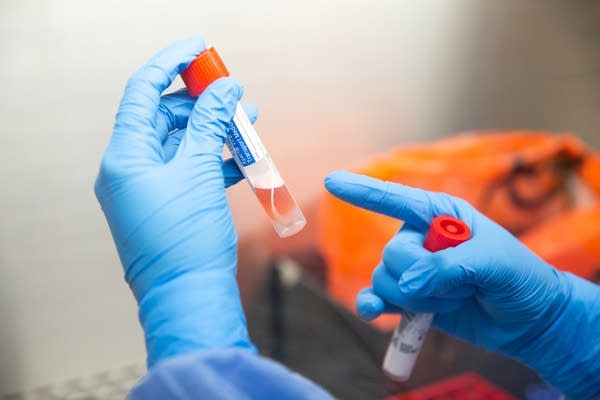COVID-19 fact-finding leads to threats against health workers in Minnesota

Samples are tested for COVID-19 in March at the Minnesota Department of Health.
Courtesy of Minnesota Department of Health
Go Deeper.
Create an account or log in to save stories.
Like this?
Thanks for liking this story! We have added it to a list of your favorite stories.


